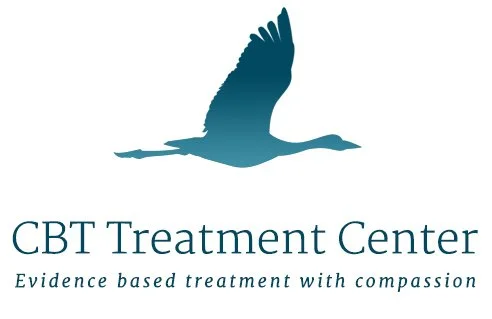
Therapy for Phobias
Is A Phobia Keeping You From Living Life To The Fullest?
Does a specific phobia or intense fear impact how you move through the world?
Do you or your child experience crushing panic or intentionally avoid situations that involve the thing you fear?
Are you ready to take steps to overcome your phobia once and for all?
Living with a phobia can be debilitating in so many ways. Not only might you live with the constant anxiety of encountering what you fear, but perhaps your avoidance leads to missing out on things you want to do.
If, for example, you’re afraid to get in a car or fly on a plane, your phobia can throw a monkey wrench into important plans. Even though you know it’s unreasonable and inconvenient, your body may revolt against you, making it seem impossible to overcome crippling fear.
You Might Hate Disappointing Others
It’s bad enough to live with intense feelings of anxiety that may sometimes culminate into panic attacks, but managing the expectations of friends and loved ones can also be emotionally draining. Having to explain why you can’t make it to a family wedding or your child won’t be attending a slumber party due to their fear of dogs is yet another downside you must contend with. Confronting the disappointment of others—and, perhaps, the frustration you feel with yourself—while trying to navigate your phobia can leave you feeling exhausted, isolated, and depressed.
The good news is that with therapy, phobias can be overcome, allowing you to live in alignment with your values and goals. At CBT Treatment Centers, we offer customized phobia therapy that addresses common fears—such as flying, driving, or public speaking—or rarer ones, like foods or animals.
Phobias Don’t Always Have An Origin Story
Phobias come in all shapes and sizes. It’s estimated that, in general, “about 12.5 percent of the US adult population experienced a specific phobia at some point and the lifetime prevalence of specific phobias across the world is between 3 percent-15 percent.” While some phobias are relatively common—for example, it’s estimated that 73 percent of the US population suffer from a fear of speaking and 40 percent have a fear of flying—others can be more unusual. [1]
Although the origins of some fears stem from bad experiences, such as a fear of dogs after being bitten or a fear of driving after an accident, other phobias are more mysterious. These unexplained, irrational fears can be all the more vexing because we don’t understand why we have them, yet they can completely take over our lives.
This lack of control can lead us to beat ourselves up. We’re beholden to an illogical fear, yet we don’t know why.
Suffering From Phobias Carries Cultural Stigma
Whether we’re getting pushback from family members or watching someone with a phobia depicted as the “kooky” butt of a joke in a movie or TV show, we often feel judged, criticized, and misunderstood for our phobia. The more unique it is, the more we may feel ashamed or embarrassed of our fear and avoidance.
However, phobia treatment puts you in the driver’s seat, letting you take charge of your life. With therapy, you can gain an understanding of your phobia and find ways to accept and, perhaps, completely overcome your fear.
Therapy For Phobias Allows You To Regain Control Of Your Life
What To Expect In Sessions
Similar to working out where you don’t start with a dumbbell that’s too heavy to lift, we take a collaborative approach, gradually helping you build a path to higher goals and achievement. Sometimes, this includes teaching family members how to support you in taking the necessary steps toward living on your own terms without fear getting in the way.
Evaluating your current go-to coping skills will determine whether what you’re doing now is helpful or only masking the underlying phobia. You will also learn about the nature of fear, why it exists, and what to do when fear creeps in. Ultimately, we focus on how to live with the knowledge that the thing you fear exists in the world and, rather than avoiding it at all costs, how you can increase your distress tolerance and accept it for what it is.
How We Treat Phobias
We use a combination of Acceptance and Commitment Therapy (ACT) and exposure-based protocols to treat the phobia. With ACT therapy, we prioritize a values-based life, exploring what is most meaningful to you and noticing how your phobia gets in the way of that. We will start exposure therapy to confront your phobia only when you feel ready to do so and at a pace you can handle.
Sometimes, overcoming fears outright may not be within the scope of your goals. For example, conquering a fear of insects doesn’t have to look like holding one in your hand. Instead, you’ll be equipped with the skills and tools to manage your feelings and responses so you no longer live in constant fear of encountering them.
In many instances, it's easy to avoid the thing you fear, such as an elevator or a tight space. But if you had to be in one, wouldn't you prefer not to suffer through the experience?
Some examples of the phobias CBT Treatment Center can address in therapy are:
Aerophobia/aviophobia—fear of flying;
Amaxophobia/vehophobia treatment—fear of driving;
Emetophobia—fear of vomiting;
Acrophobia—fear of heights;
Cynophobia—fear of dogs;
Ornithophobia—fear of birds;
Entomophobia—fear of insects;
Trypanophobia—fear of needles;
Hemophobia—fear of blood;
Mysophobia—fear of germs;
Acrophobia—fear of heights;
Claustrophobia—fear of small, confined spaces; and
Glossophobia—fear of public speaking.
Living a life free from crippling phobias is completely possible. You no longer have to say no to things you want to do. Working together, we can help you step out of fears that keep you trapped and live more enjoyably.
It can be difficult to face a phobia, especially when fear completely takes over. You may not see a way out or imagine living any other way. If you’d tried to overcome it on your own only to have your body rebel against you, you may feel stuck. But if you’re fed up and ready to try again, there’s hope. Whether or not your phobia makes sense to you, we can help.
In therapy for phobias, we explore the fear together—the history of it, what you've done about it, and what you've missed out on because of it. We will also look at how life would be different if you weren't debilitated by your fear by giving you the opportunity to ask yourself what kind of life you want to have while exploring all you could do if you weren’t held back.
But You May Wonder Whether Therapy For Phobias Is Right For You…
Will I have to force myself to do something I don't want to do in phobia therapy?
Although the goal of phobia treatment is to move out of your comfort zone, ultimately, you get to decide what you’d like to expand on. It will be hard at times, but we will never ask you to do something that we wouldn't do ourselves. We will determine what you hope to accomplish and then help you work to achieve it. Our objective is to get you through each day without restrictions or avoidance.
What if I can’t get past the fear and remain stuck?
We will go as far as you can. You set the goals and the targets. Sometimes, those goals are adjusted during treatment. We start therapy with the understanding that sometimes things will be uncomfortable; after all, you’ll be stretching and growing. We’re committed to working with you to help you achieve your goals.
How do you modify phobia treatment for children?
Working with kids to overcome their fears always involves creativity because they’re motivated to learn through play, fun, and rewarding activities. For phobias that require a parent’s involvement, such as fear of being in a car, we work collaboratively with children and parents to achieve your goals, even if they conflict with each other.

Overcoming Your Fears Is Possible
Life doesn’t have to be limited by your fears. To schedule a free consultation to learn more about therapy for phobias, either in-person or online, please contact us.
[1] https://medalerthelp.org/blog/stats-and-facts/phobia-statistics/




